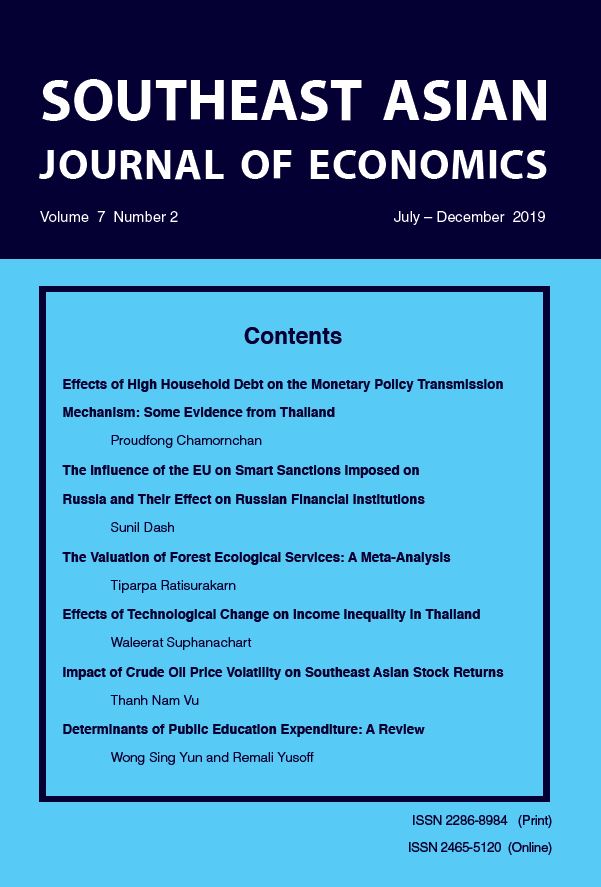Effects of High Household Debt on the Monetary Policy Transmission Mechanism: Some Evidence from Thailand
Keywords:
Monetary Policy, Transmission Mechanism, Household Debt, Threshold-Structural Vector AutoregressionAbstract
Household debt in Thailand has risen sharply in the past few years. In addition to its downsides on household consumption, the high level of household debt can affect the effectiveness of monetary policy. In this paper, I use the Threshold-Structural Vector Autoregression technique to show that Thailand’s monetary transmission mechanism is weaker during the high-debt periods compared to the low-debt periods. The explanation can be drawn from three arguments which are debt overhang, borrowing constraints faced by households, and the high proportion of fixed-interest rate loans.
Downloads
Published
How to Cite
Issue
Section
License
The submission of a manuscript implies that the paper is an original work and has not been published elsewhere. The author(s) authorize the journal to reproduce or distribute the paper in printed or other electronic forms.






